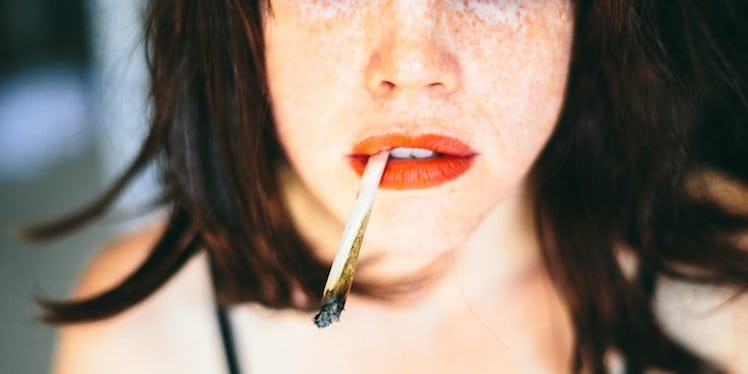
This Is How Much Weed You Should Smoke If You’re Trying To Relieve Stress
Marijuana can be a fickle little drug.
For some people, a few hits will transport them into a state of pure bliss and relaxation, while for others, just one puff might send them into a downward spiral of anxiety and paranoia.
Given its (mostly) illegal nature, the effects of marijuana are pretty difficult to study in a controlled, scientifically reliable way.
But one new study from the journal Drug and Alcohol Dependence has shed some light on the dose-dependent qualities of tetrahydrocannabinol (THC) -- the main psychoactive chemical in pot -- and how the drug relates to stress relief.
With her colleagues, Emma Childs, an associate professor of psychiatry at the University of Illinois at Chicago, studied 42 healthy participants between the ages of 18 and 40, all of whom had some experience with using cannabis, but didn't use the drug on a daily basis.
The subjects were randomly separated into three different groups in a double-blind fashion, meaning both the participants and the researchers didn't know who belonged to which group.
One group received a low dose of THC (a capsule containing 7.5 milligrams of the compound), another group received a moderate dose (12.5 milligrams of THC), and the third set of subjects were a placebo group, meaning they received a capsule containing no THC at all.
All subjects participated in two four-hour tasks at the University of Chicago, with each individual ingesting their assigned doses of THC before each session.
For the first session, participants dedicated 10 minutes to prepping for a mock job interview. Then, they met with lab assistants for a five-minute interview, and were subsequently told to count backwards by subtracting 13 from a five-digit number (which lasted five minutes).
Given that I can barely figure out how much money to give the cashier at Taco Bell after partaking in a bit of the green stuff, I'd imagine this task probably seems impossible to do when you're stoned.
Or, as Childs put it, she and her colleagues considered the task to be "very reliably stress-inducing."
During their second session, subjects met with lab assistants once again, but this time, they were simply asked to discuss a favorite movie or book for five minutes, and then play a quick game of solitaire.
For both sessions, the participants were required to rate their stress levels and to describe how they felt about each task. Researchers also looked at their physiological measures at different intervals, such as participants' blood pressure, heart rate, and cortisol (a stress hormone) levels.
The subjects who received 7.5 milligrams of THC reported feeling less stress after the more challenging task, compared with those who received the placebo capsule.
Those who were given the moderate dose of THC said they were in a more negative mood both before and throughout that task, which they were also more likely to describe as "threatening" and "challenging."
Interestingly, the researchers found no significant differences among participants in terms of heart rate, blood pressure, or cortisol levels at any point before, during, or after each of the two tasks.
Childs explained the results of the study,
Our findings provide some support for the common claim that cannabis is used to reduce stress and relieve tension and anxiety. At the same time, our finding that participants in the higher THC group reported small but significant increases in anxiety and negative mood throughout the test supports the idea that THC can also produce the opposite effect.
Of course, there's still so much we don't know about the effects of cannabis, let alone the relationship between the drug and anxiety levels.
In 2014, researchers at Vanderbilt University discovered cannabinoid receptors in a part of the brain involved in anxiety regulation and the flight-or-fight response.
Plus, another 2014 study found that, of about 100 patients surveyed who use medical marijuana, half of them reported relief from feelings of stress and anxiety.
So, there's a clear correlation brewing somewhere here, but unfortunately, it's pretty difficult for researchers to obtain permits to study marijuana, so it'll be awhile before we can really see any longterm trends in this research.
In the meantime, maybe we should just consider pot to be a kind of Goldilocks drug -- not too much, but not too little, either.
You have to get the dose juuuuust right.